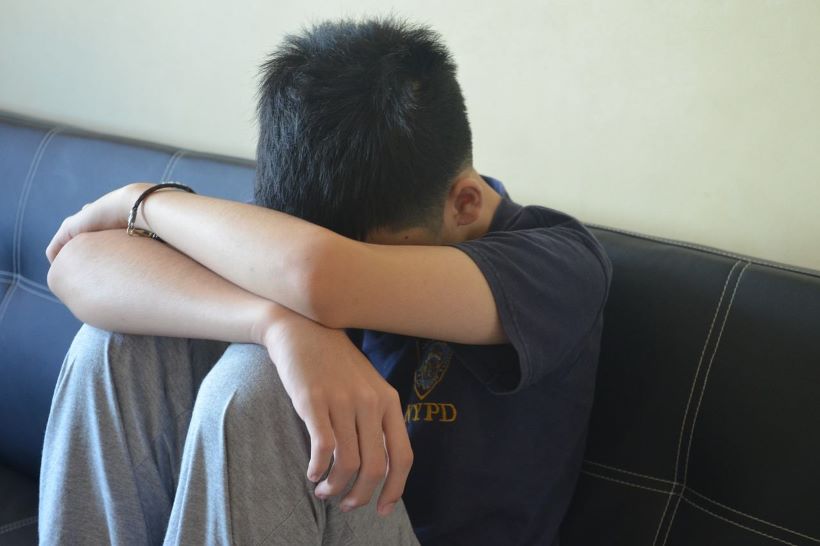The article on bullying has been co-authored by 18-year-old Urshita Sharma.
Okay, I’m gonna give you guys some statistics and I want you to actually think about how serious of a matter this is before I introduce you to today’s topic.
7 in 10 young people experience this before they hit the age of 18, about 70% of school students say that this happened to them at least once and finally more than 1 in 10 people have admitted to doing this at least once.
Confusing right? Well, I’ll tell you what these statistics depict. These are just some of the statistics on bullying, to be specific, teenage cyberbullying.
Cyberbullying is one of the most common types of bullying faced by teenagers today.
Bullying can be of so many types that honestly, now I’ve just lost count. The most frequently heard about is cyberbullying because of how easily our information can be found on social media platforms. Unfortunately, bullying is not only limited to online. It has its roots deep in the offline world as well. “How?”, you ask since you barely spend time in the physical world. Just like in the virtual world, bullying in the physical world ranges from name-calling and spreading rumours to physical fights.
My First Encounter With Bullying
My first encounter with bullying as far as I remember was in the 5th grade. Before I explain what happened, let me tell you about the type of people in my class. We had the typical jocks/bullies, the wanna-be mean girls, the studious and then us XD (I never said I was a popular kid). So it was a normal morning and my friends and I were singing Taylor Swift’s songs (we’re the true OGs, GenZ) waiting for the first bell to ring.
In came the bullies and as soon as we saw them we stopped singing. It wasn’t because we were scared of them. Nope. It was because we knew that no encounter with them would be pleasant. They were known to make rude and derogatory comments. So naturally, we stopped. However, by then they had already heard us and were now mimicking our singing.
I was angry, and even though my friends tried to stop me, the bully and I were soon engaged in a battle of cruel words. Only years later did I realize the effect it had on me. I had become an angry teenager at some point. I would get angry at the slightest of things. This was just one of the ways that bullying could affect a teen’s mental health.
The next time I encountered bullying was in grade 10th. So basically, it was a normal conversation in my class WhatsApp group which turned into “my friends” talking behind my back after I left the group and if that wasn’t enough, they actually brought up my mother in their dumb conversation (yeah, teens are cruel). Honestly, more than hurt I was confused as to how the conversation turned that way but now I just think that it was because they were jealous I told my parents everything (evil laugh).
But that brings up another problem. Who to tell when you’re being bullied? Most of the bullied teenagers end up not telling anybody.
Unfortunately, many of my fellow teens don’t have it as easy as I did. My roommate in college is one of those teens. She shared her stories and yes I have her permission to share them here (consent in any relationship is important guys). I won’t go into the details because that’s not important here.
She’s been teased and bullied for being short and has also been discriminated against because of her skin colour. Can you imagine the amount of damage it can cause to a teenager’s mental health?
Today, she’s in a better place but she’s also built a hard exterior. Her defence mechanism is sarcasm and self-deprecating jokes. Do you do that as well? Yes, the majority of us do that. But the question is – Is it right? Is it a healthy way to cope? I think not.
So should you tell someone, ask for help maybe? But that also happens very rarely. The majority of us think it’s better to suffer alone rather than ask for help. For some, the reason is an embarrassment, from someone it’s the fear of rejection from people around. However, you need to be a little brave and do it for yourself.
But before I tell you how to deal with bullies, I’ll tell you how bullying affects your mental health. Why? Because it’s imperative to be aware of what’s going on with yourself and only then will you know what to do.
- Teens who are bullied over time are more likely than those not bullied to experience depression, anxiety and low self-esteem.
- They are also at higher risk for more intense anti-social behaviours like fights at school and substance use.
- In school, grades may begin to suffer because of bullying, which can occur due to trouble concentrating or skipping school to avoid the bully.
- Teens can experience a range of sleep issues, like trouble falling or staying asleep.
These are just some of the effects of bullying on mental health. They range from changes in eating habits and feeling shameful to the risk of suicidal thoughts.
Positive Ways To Deal With Bullies
- Try Talking To The Bully – If you feel that you’re not at risk of physical harm, try and talk to your bully about how their behaviour is harming you. If this doesn’t work, then –
- Tell A Trusted Adult – Adults in positions of authority like parents, teachers, and counsellors can often deal with the bullying without the bully ever learning how they found out about it.
- Ignore & Walk Away – The majority of the time, the bullies are only looking to get a reaction out of you. So why give them that? I know it’s hard but try ignoring it and walk away. There’s a high probability the bully is gonna get tired when they see no reaction from you.
- Never Be Physical – I know you’re angry but being physical with your bully is more likely to hurt you. Work out your anger in another way, such as writing in your journal or going for a run. Whatever works for you (nope, still no fighting).
- Be Confident – Practice ways to respond to your bully verbally and confidently. Walk with your head held high. This type of body language sends a message that you’re not vulnerable.
- True Friends – Always choose who you hang out with very carefully. Only true friends will stay with you even when things get hard.
I completely understand what you’re going through. However, trust me when I say that it’s going to get better. Just hold on for a little while, my friend. It’s not your fault. You’re doing great. I’m proud of you.
Until next time!


















